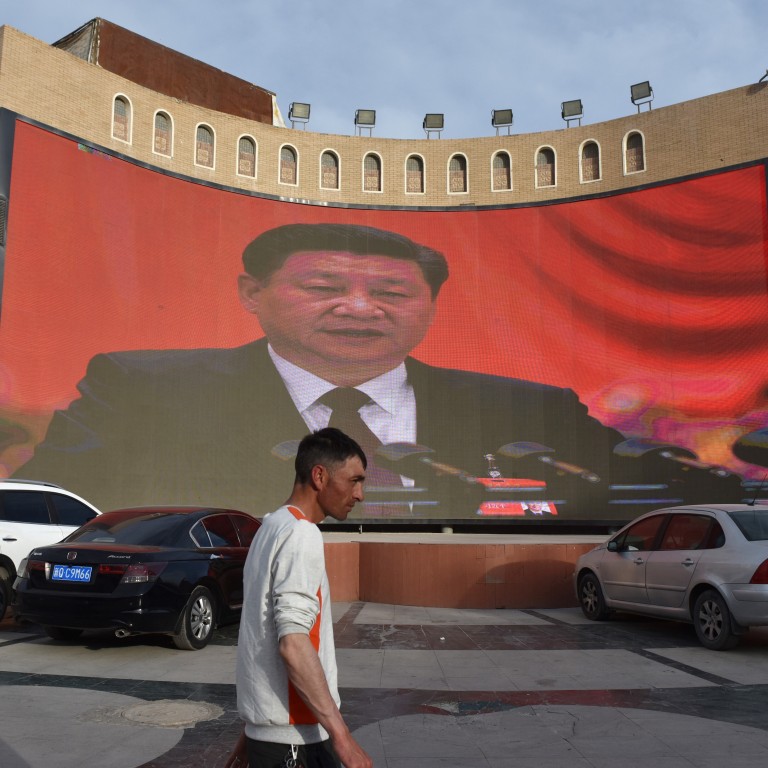
US sanctions on China will continue but Beijing ‘unlikely to escalate’ amid decoupling fears
- The Biden administration sanctioned 23 more Chinese entities for suspected Xinjiang abuses, military and business ties last week
- Experts say Beijing will be cautious about retaliating under its new anti-sanction law as it is reluctant to encourage technology decoupling
China is prepared for more sanctions after the US added 23 Chinese entities to its export blacklist last week, but Beijing will be cautious in responding given its reluctance to encourage full-scale technology decoupling, Chinese experts and government advisers say.
Beijing vigorously denies rights abuses in the far western region and views Washington’s sanctions blitz as part of an effort to contain China’s technological development and growing power.
US ban on China’s Xinjiang solar products linked to alleged forced labour heaps pressure on supply chains
“The US is the only country in the world that targets specific companies in terms of technology decoupling,” said Shi Yinhong, an adviser to the State Council and a professor of international relations at Renmin University.
“The number of Chinese companies sanctioned by the US from the late Trump administration until now is already quite high.”
In April, the US added seven Chinese supercomputing entities to the entity list for “conducting activities that are contrary to the national security or foreign policy interests of the United States.”
“The US will definitely add more Chinese companies to its entity list on the same ground,” Shi said.
In a statement published on Monday, Beijing Kyland Technology – the parent company of Armyfly – said it had made preparations in advance of possible sanctions and continues to work on the replacement of components and materials.
The company added the impact on its business would be “manageable” as it was still allowed to export to the US. However, to import American components its US supplier will need a special license from the US government, an exception that is rarely granted.
Wuhan Raycus Fiber Laser Technologies said in a statement the sanctions will not have “any impact” on business, as its core devices and materials are mostly self-made, and it has built a supply chain consisting mainly of domestic manufacturers.
It’s unlikely that China will impose tit-for-tat retaliation ... because China doesn’t want to decouple
On Sunday, the Ministry of Commerce blasted the US sanctions as “an unreasonable suppression” of Chinese enterprises that had caused “serious damage” to international economic and trade rules.
“We will take necessary measures to resolutely safeguard the legitimate rights and interests of our country,” said the ministry in a statement.
“The problem is now many of China’s technologies still have a great dependence on the US, so a tit-for-tat retaliation may have some negative impact.”

02:23
China passes anti-sanctions law to counter punitive action by foreign countries
Shi said additional sanctions would create significant difficulties for Chinese companies in the short and medium term, but they would also “force China to step up its technological innovation and to better familiarise itself with relevant international laws and practice”.
Andy Mok, a senior research fellow at Centre for China and Globalisation, a Beijing think tank, said he also expected more sanctions.
“I think that this is driven largely by the Biden administration’s misguided effort in what they describe as the fight against autocracies,” he said.
“So they’re doing everything they can to keep China contained. The US is also doing this for domestic political purposes as well, because the Biden administration fears nothing more than to be outflanked on China by the Republicans.
“What response China takes will depend on what the US does. But I also think that what China is looking to do is to create a more harmonious global environment and is unlikely to escalate.”

